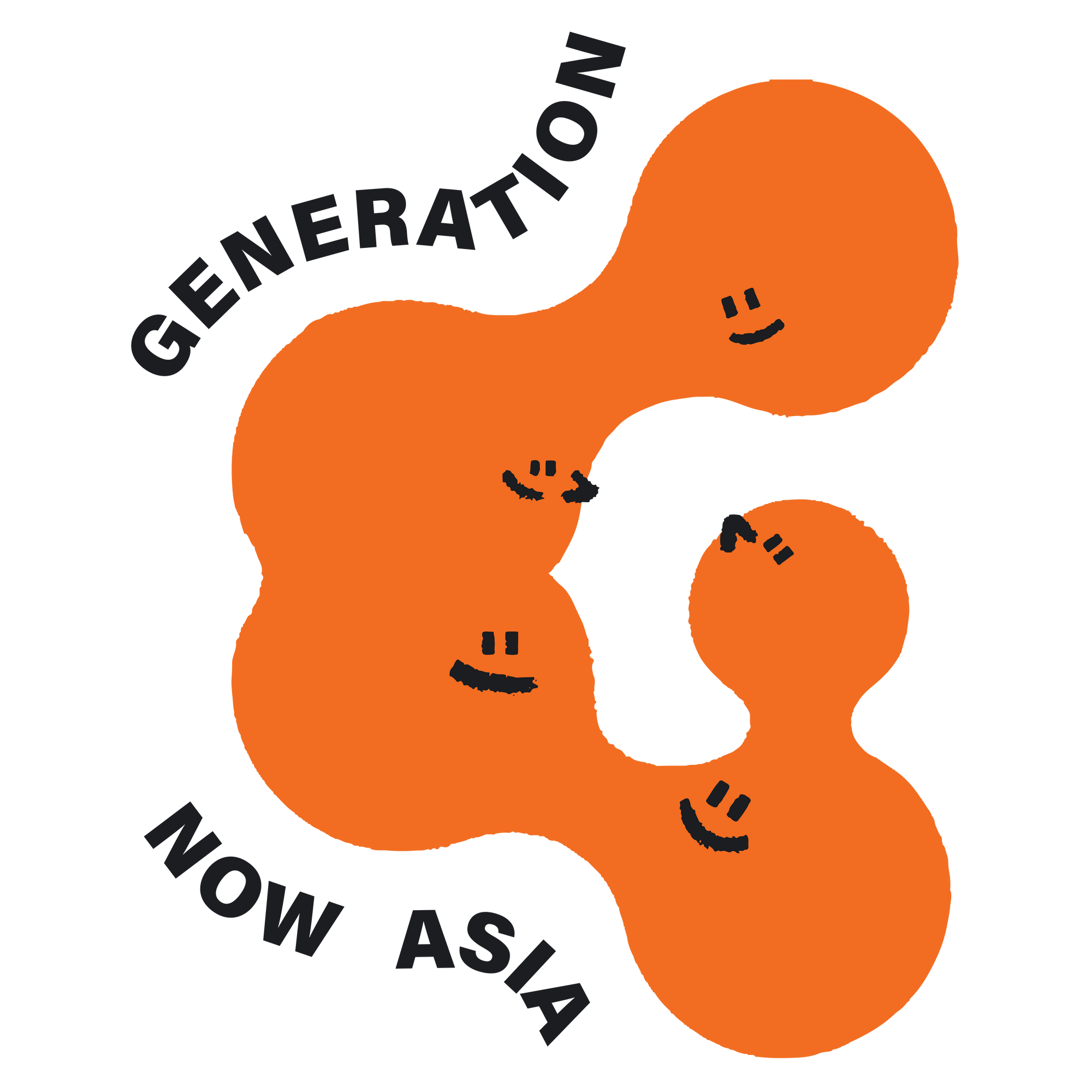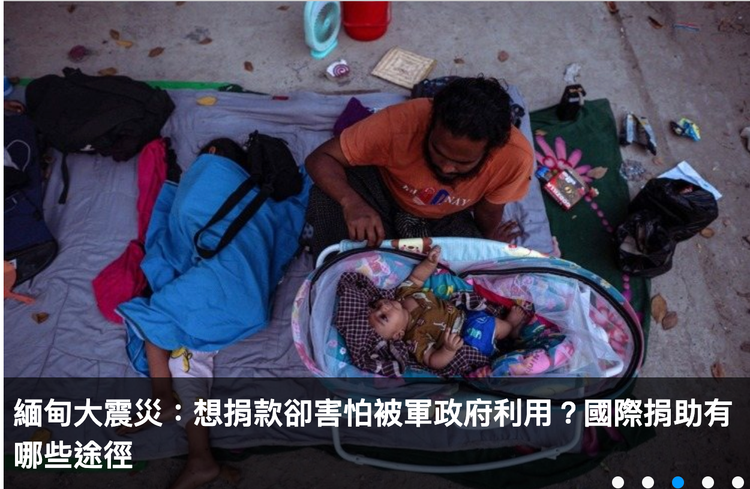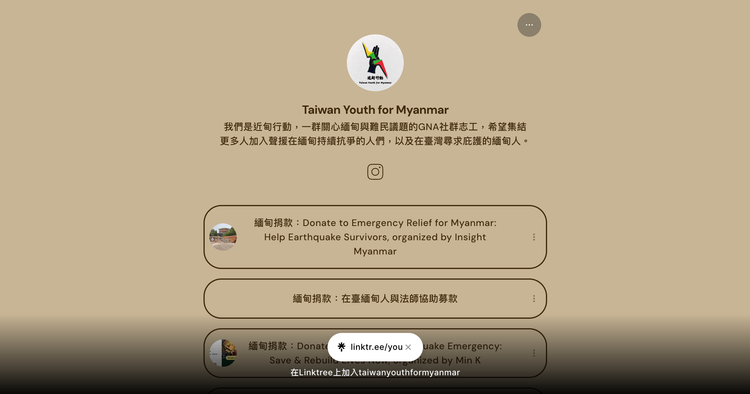講座筆記【GNA 青年培力營計畫:第 3 天 建立倡議運動盟友】 Notes from GNA Youth Capacity Building Program: Day 3 Building Campaign Allies

On the third and final day of GNA's Youth Capacity Building Program, we had the privilege of hosting two distinguished speakers: Yi-Chien Chen (陳宜倩) from the Graduate Institute for Gender Studies and Brian Hioe (丘琦欣) from New Bloom. They shared their insights and strategies regarding the cultivation of campaign allies and communicating with others.
Speakers bios:
Chen Yi-Chien is Professor in the Graduate Institute for Gender Studies, Shih-Hsin University, in Taiwan. She received her J.S.D. (Doctor of the Science of Law) from Cornell Law School in New York, USA, and LL.M.s from Heidelberg University in Germany and Cornell Law School in the US. Her area of specialization is Men and Feminism, Comparative law and cultural studies, Gender/Sexuality and Law, LGBTIQ+ rights. In addition to her research and teaching, she is also involved in NGOs work and was the chairperson of the Awakening foundation (a feminist NGO in Taiwan since 1982) from 2014-2016.
Brian Hioe is a writer, editor, translator, activist, and DJ based out of Taipei. In 2014, he was one of the founders of New Bloom Magazine (破土), an online magazine covering activism and youth politics in Taiwan and the Asia Pacific that was founded after the Sunflower Movement. In his capacity as such, he helps run New Bloom’s community space and infoshop in Wanhua, Taipei, DAYBREAK (破曉咖啡).

In Chen Yi-Chien's presentation, it was highlighted that communication operates on multiple levels, and is a constant process woven into our daily lives. The Pyramid of Communication was used to illustrate the diverse scientific disciplines investigating this expansive subject. She then proceeded to delve into the varied settings where communication unfolds as an activist, including interactions with NGOs, politicians, workplaces, etc, where norms and restrictions tied to gender - whether overt or covert - can shape these exchanges.
Yi-Chien's presentation centered on the potency of networking, vividly illustrated by a collection of photographs featuring friends, comrades and allies she had forged connections with across different nations throughout the years. She underscored the significance of nurturing these relationships, emphasizing the unpredictable yet pivotal moments when these connections might offer invaluable support during campaigns and how you can then rely on them to stand in solidarity and advocate together for a certain issue.
Additionally, she emphasized the proactive approach of initiating contact with unfamiliar individuals to cultivate connections, suggesting methods like sending emails or extending invitations for a casual coffee and conversation. Yi-Chien shared her practice of engaging with individuals, regardless of their established interest in her field of gender studies, aiming to spark dialogue and potentially awaken their consciousness on the subject through open discussions and shared thoughts.
She conveyed her personal strategy of leveraging academia as a catalyst for change while highlighting that there are an array of avenues available for individuals to take to communicate and drive change. Concluding her talk, Yi-Chien highlighted that popular culture can be a powerful and influential force for societal transformation. Yi-Chien suggested that a compelling film - with its ability to resonate deeply with mass audiences - might sometimes wield more efficiency in inciting change than even the force of law.

Brian Hioe then proceeded with a talk focusing on utilizing media as a pivotal tool for amplifying a campaign's message. He began his presentation by recounting the origins of New Bloom in the wake of the Sunflower Movement in 2014. He elaborated on the challenges faced during this period, noting the difficulty in garnering international recognition for the social movement, primarily because Taiwan's presence in the international media sphere was notably limited. Brian highlighted the contrast with the Umbrella Movement in Hong Kong during the same year, which attracted significant global attention due to the presence of numerous international media offices in the city, stemming from its status as an international financial center.
He spoke how media can be used as a tool to raise awareness of an issue and for a campaign by serving as a potent means of garnering local support for the cause at hand. Adding, that media coverage can also facilitate the establishment of connections with fellow activists, enabling the forging of alliances and solidarity across different movements. Brain additionally mentioned that, compelling media narratives have the potential to sway the public and politicians, effectively conveying the campaign's urgency and importance, which could thereby influence political decisions and actions.
Brian touched on how when engaging with "international" media outlets, there's a unique opportunity to reach global audiences and amplify the campaign's message on an international scale. He also pointed out that those activists who sometimes receive international attention tend to be self-selected and might not authentically represent the broader population. For instance, individuals may become spokespersons merely because they speak English fluently or due to their promptness in responding to emails, rather than being the pivotal figures within the movement or cause. The spotlight, he suggested, doesn't necessarily always illuminate the true key players or the most representative voices.
Wrapping up his presentation, Brian highlighted several hurdles that activists might encounter while communicating with the media. He pointed out that one problem may be that how the media tells the story might not match how the activists want it to be told. Additionally, he noted the potential for backlash from certain factions within the movement due to differing perspectives portrayed in the media. Furthermore, he said that the things the media cares about often differ from what activists focus on, making it difficult for activists to find a media that wishes to cover their story.
We invited Yi-Chien Chen and Brian Hioe to join us after their talks for some roleplay exercises where in their groups, participants could have a chance to improvise speaking to a politician and the media.
To enhance this process, groups were granted time to craft their elevator pitch. This allowed them to collaboratively brainstorm the most effective approach to introduce their campaign, ensuring their core message was effectively communicated.
Why opt for an elevator pitch?
An elevator pitch serves as a concise (around 30 seconds!) method to introduce yourself/your campaign, convey essential points, and make a connection with someone. It's a valuable tool to have at your disposal whenever you're in situations where you might encounter potential supporters for your campaign or opportunities for networking.
The groups were presented with the chance to simulate their 30-second pitch in front of two distinct personas: a representation of the media (Brian) and a politician (Yi-Chien). Should these individuals find the pitch compelling, the groups were then granted an additional 5 minutes to delve deeper, solidify their connection and elaborate on key talking points. Extra sessions were also held involving role-playing with a potential donor and another politician, offering valuable extra practice opportunities for each group. Consequently, every group had the chance to refine and enhance their elevator pitch through four iterations, allowing space for improvement.


Following the presentations, the speakers provided constructive feedback on the groups' performances:
Brian: “The media wants to report on specific stories, not the broader picture, so when you speak to the media remember to tell them what is unique about your issue, and who is unique in the story. For example, who is the story about, do you have one particular person that has an impactful story that we can write about?”
Yi-Chien: “It's great that a lot of the groups told me why I was important and that they like the work that I have already done, however few groups told me or asked what they wanted from me. When you have limited time to speak to someone in power it’s important that you let them know why you want to speak to them and how they can help you - remember your hard ask!”
在GNA青年能力建設計畫的第三天也是最後一天,我們有幸邀請到兩位傑出的演講者:來自性別研究所的陳宜倩和代表New Bloom的丘琦欣。 他們分享了關於建立倡議運動盟友和與他人溝通的見解和策略。
講者簡介:
陳宜倩,台灣世新大學性別研究所教授。 她在美國紐約康乃爾大學法學院獲得法學博士學位,並相繼在德國海德堡大學和美國康乃爾大學法學院取得法學碩士學位。 她的專業領域是男權與女權主義、比較法與文化研究、性別/性與法律、LGBTIQ+ 權利。 除了研究和教學,她還參與非政府組織的工作,並在 2014-2016 年期間擔任婦女新知基金會(自 1982 年以來一直是台灣的女性主義非政府組織)董事。
丘琦欣 (Brian Hioe) 是一名作家、編輯、翻譯、活動家和 DJ,現居台北。 2014 年,他成為《破土》雜誌(New Bloom Magazine)的創辦人之一,這是一本報道台灣和亞太地區激進主義和青年政治的線上雜誌,創辦於太陽花運動之後。 他也協助管理《破土》在台北萬華的社區空間和資訊商店 "破曉咖啡"。
陳宜倩的演講強調,溝通是在多個層面上進行的,是融入我們日常生活的持續過程。她用 「傳播金字塔」來說明研究這一廣闊課題的不同科學學科。 她繼續深入研究作為一名活動家展開溝通的各種環境,包括與非政府組織、政治家、工作場所等的互動,在這些環境中,與性別相關的規範和限制--無論是公開的還是隱蔽的--都會影響這些交流。
宜倩的演講以網路的力量為中心,透過一組照片生動地展示了她多年來與不同國家的朋友、同志和盟友建立的聯繫。 她強調了培養這些關係的重要意義,並強調在一些不可預測的關鍵時刻,這些關係可能會在倡議活動中提供寶貴的支持,以及如何依靠這些關係來團結一致,共同倡導某個議題。
此外,她還強調了主動與陌生的人接觸以培養聯繫的方法,建議採用發送電子郵件或邀請他們喝咖啡聊天等方式。 宜倩分享了她與他人接觸的做法,無論他們對她的性別研究領域是否有興趣,她都希望透過公開討論和分享想法來激發對話,並喚醒他們對這個主題的意識。
她介紹了自己利用學術界作為變革催化劑的個人策略,同時強調個人可以透過一系列途徑進行交流和推動變革。 最後,宜倩強調大眾文化可以成為推動社會變革的強大且有影響力的力量。 宜倩認為,一部引人入勝的電影——能夠引起大眾的深刻共鳴——有時甚至比法律的力量更有效地推動變革。
Brian Hioe (丘琦欣)隨後發表演講,重點介紹如何利用媒體這項關鍵工具來傳播活動訊息。 他首先講述了破土在 2014 年太陽花運動之後的起源。 他詳細闡述了這段時期面臨的挑戰,指出社會運動難以獲得國際認可,主要是因為台灣在國際媒體領域的存在明顯有限。 Brian Hioe (丘琦欣)強調了與同年香港雨傘運動的對比,由於香港作為國際金融中心,有許多國際媒體辦事處,因此雨傘運動吸引了全球的極大關注。
他談到如何利用媒體作為一種有力的手段,為手邊的事業爭取當地的支持,從而提高人們對某一議題和某一運動的認識。 他補充說,媒體報道還可以促進與其他活動家建立聯繫,從而在不同運動之間建立聯盟和團結。 Brain 也提到,引人注目的媒體敘事有可能左右公眾和政治家,有效傳達運動的緊迫性和重要性,進而影響政治決策和行動。
Brian談到,在與 "國際 "媒體接觸時,有一個獨特的機會可以接觸到全球受眾,並在國際範圍內放大活動的訊息。 他也指出,那些有時受到國際關注的活動家往往是自我選擇的,可能並不能真正代表更廣泛的人群。 例如,有些人可能僅僅因為英語流利或回覆郵件迅速而成為發言人,而不是運動或事業的關鍵人物。 他認為,聚光燈並不一定總是能照亮真正的關鍵人物或最具代表性的聲音。
在結束演講時,Brian 強調了活動人士在與媒體溝通時可能會遇到的幾個障礙。 他指出,問題之一可能是媒體講述故事的方式可能與活動人士希望的方式不一致。 此外,他還指出,由於媒體描述的觀點不同,運動中的某些派別可能會產生反彈。 此外,他還說,媒體關注的事情往往與活動人士關注的事情不同,這使得活動人士很難找到願意報導他們故事的媒體。
我們邀請 Yi-Chien Chen 和 Brian Hioe 在演講結束後加入我們,進行一些角色扮演練習,參與者可以在小組中即興對政客和媒體發表演說。
為了加強這個過程,各組都有時間精心設計他們的 "電梯演講"。 這使他們能夠共同集思廣益,以最有效的方式介紹他們的活動,確保他們的核心訊息得到有效傳達。
為什麼選擇電梯演講?
電梯演講是一種簡潔扼要(約 30 秒!)的方法,用於介紹自己/你們的倡議活動,傳達要點,並與他人建立聯繫。 無論何時,當您遇到潛在的競選支持者或社交機會時,它都是您可以使用的寶貴工具。
各組有機會在兩個不同的角色面前模擬他們的 30 秒推銷:一個是媒體代表(Brian),另一個是政治家(宜倩)。 如果這些人認為他們的推銷很有吸引力,那麼各小組就會有額外的 5 分鐘時間來深入探討,鞏固他們之間的聯繫,並闡述關鍵的談話要點。 此外,還額外安排了與一位潛在捐贈者和另一位政治家進行角色扮演的環節,為每個小組提供了寶貴的額外練習機會。 因此,每個小組都有機會透過四個反覆練習來完善和提高他們的電梯演講,為改進留出了空間。
發言結束後,發言人對各組的表現提出了建設性的回饋意見:
Brian:「媒體想報道的是具體的故事,而不是更廣泛的情況,因此,當你與媒體交談時,記得告訴他們你的問題的獨特之處,以及誰在故事中是獨特的。例如 ,這個故事是關於誰的,你是否有一個獨特的故事是值得媒體去寫的?」
宜倩說:「很多團體告訴我我的重要性,他們喜歡我的政績,這很好,但很少有團體告訴我或問我他們想要什麼。當你與當權者交談的時間是有限時的,重要的是讓他們知道你為什麼想與他們交談,以及他們能如何幫助你--記住你的硬性要求!。」





